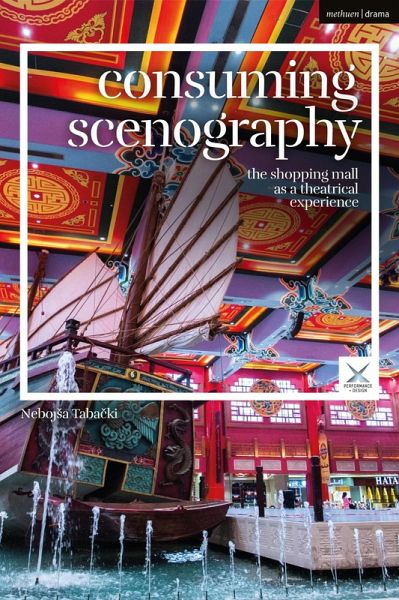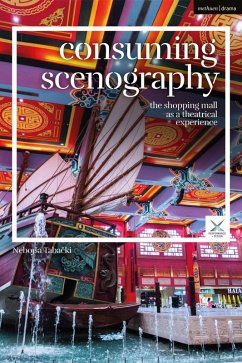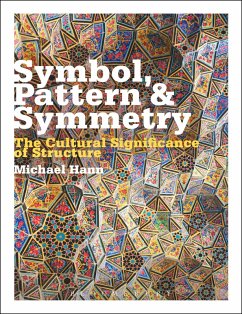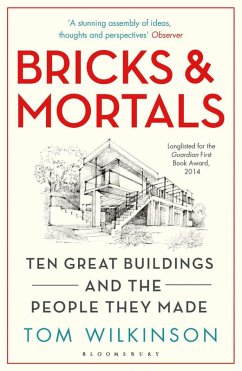
Consuming Scenography (eBook, ePUB)
The Shopping Mall as a Theatrical Experience
Versandkostenfrei!
Sofort per Download lieferbar
25,95 €
inkl. MwSt.
Weitere Ausgaben:

PAYBACK Punkte
13 °P sammeln!
Longlisted for the PQ Best Publication Award in Performance Design & Scenography 2023 Consuming Scenography offers an insight into contemporary scenographic practice beyond the theatre. It explores the ways in which scenography is used to create a global cultural impact and accelerate profits in the site-specific context of themed shopping malls. It analyses the effect of the architectural, aesthetic, spatial, material and sensory aspects of design through their performative encounters with consumers in order to offer a better understanding of performance design. In the first part the author e...
Longlisted for the PQ Best Publication Award in Performance Design & Scenography 2023 Consuming Scenography offers an insight into contemporary scenographic practice beyond the theatre. It explores the ways in which scenography is used to create a global cultural impact and accelerate profits in the site-specific context of themed shopping malls. It analyses the effect of the architectural, aesthetic, spatial, material and sensory aspects of design through their performative encounters with consumers in order to offer a better understanding of performance design. In the first part the author explores the spatial seduction of an enclosed market space and traces the origins of scenographic temporality in permanent architectonic spaces for trade and commerce, from ancient Greek and Roman roofed markets and Oriental bazaars to 19th-century arcades and department stores to modern-day shopping malls.The second section addresses the site-specific theatricality of the shopping mall, considering the use of performative aspects of scenography in the creation of corporate identity. It engages with production and consumption of experience in themed shopping malls, using historical, aesthetical, social and political lenses. In the final section, the author intertwines fluidity of market changes with flexibility of scenographic matter, drawing attention to both contradictions and prospects that merging of scenography and architecture can bring along. Considering a variety of case studies of themed shopping malls, including the Ibn Battuta Mall in Dubai, Terminal 21 in Bangkok, the Villaggio in Doha and Montecasino in Johannesburg, as well as further examples from Europe, USA and Asia - this book provides a wide-ranging critical examination of the ways in which scenographic thinking and practices are exploited in wider cultural contexts for impact, branding, and higher profits.













